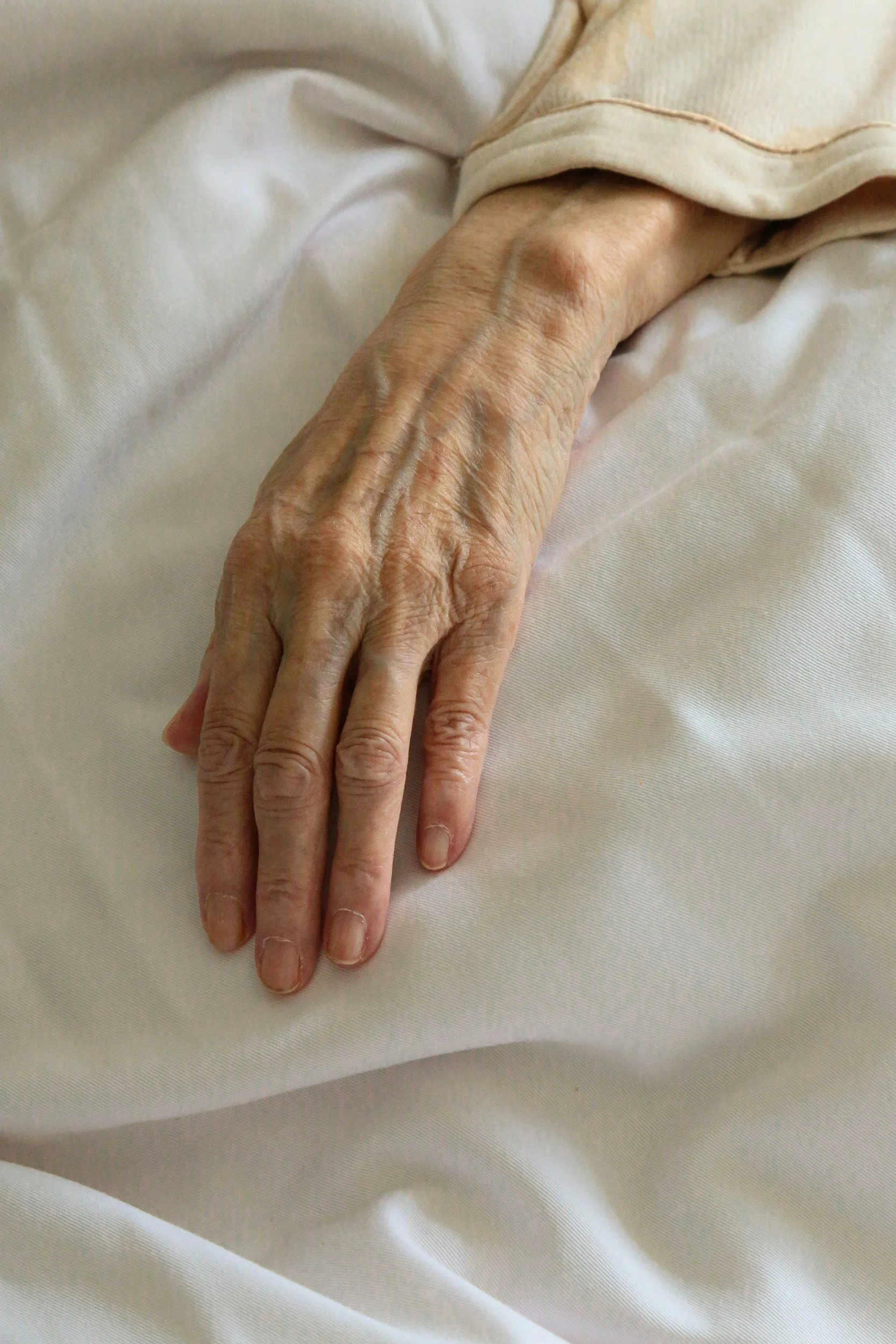Spectator
On your due date, I’ll have a hysterectomy.
I laughed when they called to schedule it, when I put it in my calendar over the faint traces of where you’d been. I’m not surprised. This much I’ve learned about grief—that it’s cruel in how it compounds, strata over strata of reddened rock.
My body has no memory of you. I’ve given everything to make you, except what other mothers give: an egg and a womb. For those, Daddy and I put our trust in two strangers.
They all say it: this too, shall pass. This too, this too, THIS TOO. But none of it ever passes. It only hides an inch beneath the surface, if we’re lucky.
When it’s eight, I try. I tell myself today is the do-over of yesterday that may finally result in something. I don’t shower—the water inside me’s enough.
Socks in hamper.
Delete emails.
Feed cat.
I cling to tasks for a semblance of control. I move through rooms, move through my list. But none of it feels like movement at all.
Since you left, I’ve been trapped in glass.
Smell went first, then touch. There’s a strangeness to everything, like the edges between planes are warped. My mind tricks me with spiders where there are none and sirens only I can hear. Every night while I sleep, I lose things that matter—no, they’re stolen from me—and I don’t know how I’ll go on.
I have to remember to check that I’m clean before I leave the house. No makeup conceals this swelling. I don’t look like me.
You didn’t look like me either, but I was ready to love you anyway.
When Daddy comes home, we crisscross in space. My eyes forget to land on him. I record his presence even less than my own. I’m angry he’s doing better than me, though he’s aching for you too. We cook and walk and shop, and I’m seeing myself on film.
They say it’s normal, that a mother’s love is like no other.
But I’m not your mother—that’s been made clear.
When you left Margot’s womb, the doctors dropped Daddy and me. They only supported her, as if they had to choose, as if her vow to us dissolved. I had to beg to hold you, to study your face and fingers like other mothers would.
It’s been months and they still won’t tell us why you left. They know what the tests said, and Margot knows, but they’re hiding it from us to protect themselves.
A mother would be told why her son died.
Feed cat.
Get sun.
Check email. Refresh. Refresh. Refresh.
The answer won’t come. Neither will you.
Maybe this is my punishment for being selfish. Instead of trying harder to create you and carry you, I chose to protect my fragile health.
When Margot offered to carry you, she told Daddy and me we’d just be spectators. I didn’t know, then, that this was a red flag, that her growing you wasn’t supposed to erase Daddy and me from the equation.
I’d say sorry for coming to appointments, and for not coming to appointments, and for asking when the appointments might be, sorry for being too excited and not excited enough, sorry for eating out or eating in or eating at all while Margot was nauseous for us, for our baby. I’d said sorry for hesitating to reimburse “pregnancy” expenses like alcohol and $300 slippers and winery dinners for six, for being so ungrateful. I’d said sorry for wanting to know when you left, for wanting an autopsy, for wanting to say goodbye.
Maybe one day, I’d have sat you down to tell you it’s important to say sorry, but to stay away from those who never do.
“Surrogates are not typically like this,” the psychologists try to reassure Daddy and me. They tell us we were unlucky, that we experienced an anomaly. But I’ve lost the courage to trust someone new.
Daddy was going to make you a storybook about how it sometimes takes three women to make one mom. You see? You were already loved. What made you change your mind?
I have no evidence of having lost you—no marks, no bleeding, no follow-up care—only this glass cage barricading my heart. At least, when it races, it’s proof I’m alive.
I haven’t told your great-grandmother about you. She would’ve told me this is not how things are done, like she does with bread and prayer and folding fitted sheets. But she would’ve softened when you arrived. I told her about my hysterectomy, that I’m tired of bleeding, like she was. “So you won’t have kids,” she shrugged after a while. “Your life is abundant in other ways.” After decades of pressing me, she’s given up on seeing me mother.
When it’s three, I post a selfie to convince friends I’m trying. They’ve criticized me for taking too long to move on. They don’t see all the ways I’m fighting to return to my body. They don’t see me lathering, lathering, lathering the lavender soap under scalding water to jolt my senses awake. They don’t see me surrendering to a pebble in my boot just so I can feel my steps. They don’t see me opening the windows wide on winter mornings for the robins to have less to pierce through.
They don’t know I bought this bonnet with yellow sailboats yesterday. Do you like it? It’s not that I’m hopeful you’ll send us someone. It’s just that I needed to decide on something without my world imploding. I can give it away, shove it in the drawer with all your things, I don’t care.
Maybe one day I’d have sat you down to tell you that healing is not unplugging a drain and watching the murk get sucked away. It’s not stepping into spring or gasping for air after being rescued to shore.
It’s a permanent, maddening process of chipping through the glass.
-Kristina Kasparian
Kristina Kasparian is a writer, health activist, and entrepreneur with a PhD in neurolinguistics. Her writing about identity, wellness, and social justice has been published by Roxane Gay, Condé Nast, Electric Literature, HuffPost, Longreads, Newsweek, Catapult, Fodor’s, Elle, the Globe & Mail, and elsewhere. She is a two-time finalist of Roxane Gay’s Audacious Book Club Essay Contest, a two-time finalist of CRAFT’s Memoir Prize, and was shortlisted for the Eunice Williams Nonfiction Prize. She recently won a top prize for non-fiction from the Plentitudes Journal. Connect with her on Instagram or at kristinakasparian.com.




